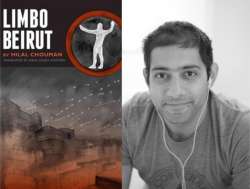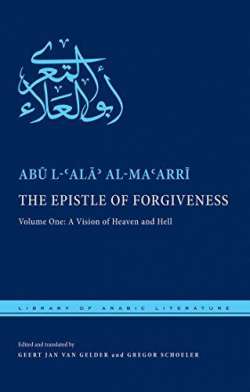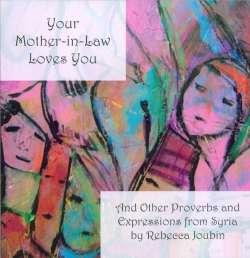‘Syria: Anatomy of a Civil War’: Masterful Yet Humble Analysis of the Syrian Revolution
 “Syria: Anatomy of Civil War” reveals humility on the part of the authors with its opening line, a quote from the poet T.S. Eliot: “For us, there is only trying. The rest is not our business.” It appears that “what is written is clear from its title,” as the folk saying goes. Here, the men made no claim to their ability to master or handle the enormity of the subject matter. This humility has, unfortunately, often been found lacking in the majority of researchers on Syria, who instead attempt to present themselves as rocket scientists and inventors of the wheel.
“Syria: Anatomy of Civil War” reveals humility on the part of the authors with its opening line, a quote from the poet T.S. Eliot: “For us, there is only trying. The rest is not our business.” It appears that “what is written is clear from its title,” as the folk saying goes. Here, the men made no claim to their ability to master or handle the enormity of the subject matter. This humility has, unfortunately, often been found lacking in the majority of researchers on Syria, who instead attempt to present themselves as rocket scientists and inventors of the wheel.
This work does take into account the influence of external factors, both regional and global. By dissecting the political economy of the Syrian regime, its decades long perverse manipulations of national, religious, and ethnic identities, and the extent to which civil society proved an inactive member of the securitocracy from the 1970s onward, the book lays the groundwork for understanding the first phase of the revolution – peaceful protests and civil mobilization – before the beginning of the militarization phase. (Both excerpts are from Mr. Salam al-Kawakibi’s review of Gille Dorronsoro, Adam Baczko and Arthur Quesnay’s “Syria: Anatomy of a Civil War” (In French), scheduled to appear in the forthcoming issue of Al Jadid, Vol. 21, No. 72, 2017).
‘Under Brush Strokes’: Hedy Habra’s Finely Woven World of Words’
 Hedy Habra’s “Under Brush Strokes” is so finely woven a world of seemingly disparate images and longings, settings and resolutions, and questions whether we are only alive insofar as we can articulate our lives through an immersion up to the limits of what the senses can feel and enjoy, challenging the corporeal boundaries of this world, an act of transubstantiation from body to pure spirit. (From Professor Mark Grime’s review of Hedy Habra’s “Under Brush Strokes,” scheduled to appear in Al Jadid, Vol. 21, No. 72, 2017).
Hedy Habra’s “Under Brush Strokes” is so finely woven a world of seemingly disparate images and longings, settings and resolutions, and questions whether we are only alive insofar as we can articulate our lives through an immersion up to the limits of what the senses can feel and enjoy, challenging the corporeal boundaries of this world, an act of transubstantiation from body to pure spirit. (From Professor Mark Grime’s review of Hedy Habra’s “Under Brush Strokes,” scheduled to appear in Al Jadid, Vol. 21, No. 72, 2017).
Photo of author Hedy Habra from Levure litteraire.
Escaping Limbo: Tales of Fear and Hope in Beirut
 "Living, dreaming, waking, and dying. Perhaps we all find ourselves in a state of limbo, clinging to routine and searching for answers to questions constantly flitting about our minds: questions of insecurity, of uncertain futures, of guilt and of reflection – and most certainly of the past. For six young adults living in Beirut as the violent events of May 2008 unfold, the past comes to occupy the forefront of their present. Eighteen years after the end of the Lebanese Civil War, these men and women find themselves still living with remnants of sectarian violence that now threaten to reemerge as Hezbollah militants and Future Movement fighters clash in the streets of Beirut." (From Naomi Pham's review of Hilal Chouman's "Limbo Beirut" scheduled to appear in Al Jadid, Vol. 21, No. 72, 2017).
"Living, dreaming, waking, and dying. Perhaps we all find ourselves in a state of limbo, clinging to routine and searching for answers to questions constantly flitting about our minds: questions of insecurity, of uncertain futures, of guilt and of reflection – and most certainly of the past. For six young adults living in Beirut as the violent events of May 2008 unfold, the past comes to occupy the forefront of their present. Eighteen years after the end of the Lebanese Civil War, these men and women find themselves still living with remnants of sectarian violence that now threaten to reemerge as Hezbollah militants and Future Movement fighters clash in the streets of Beirut." (From Naomi Pham's review of Hilal Chouman's "Limbo Beirut" scheduled to appear in Al Jadid, Vol. 21, No. 72, 2017).
Photo Credit: Author Hilal Chouman, courtesy of Nostalgic Story Teller 2.
Syrian Poet Abu l’Ala: Ancient Visions of Hell, Paradise, and Forgiveness
 In Syria somewhere around the year 1033, the blind poet and man of letters, Abu l’Ala, received a missive from another elderly grammarian, Dawkhalah. Dawkhalah hoped to ingratiate himself to the poet, and wanted to cleanse his reputation after slandering a mutual friend. Abu l’Ala’s response took two volumes, “The Epistle of Forgiveness” or “A Pardon to Enter the Garden,” although he only begins the actual letter addressing Dawkhalah’s concerns in the forthcoming translated volume two....While casual readers can pick up “The Epistle of Forgiveness” and enjoy a few pages of ancient satire and puns, more academic readers of eschatological literature and Arabic linguistics will appreciate the formidable efforts entailed in this translation’s attempt to present a prose work by “one of the great poets in Arabic literary history” to contemporary readers. Click on the link below to read the full review:
In Syria somewhere around the year 1033, the blind poet and man of letters, Abu l’Ala, received a missive from another elderly grammarian, Dawkhalah. Dawkhalah hoped to ingratiate himself to the poet, and wanted to cleanse his reputation after slandering a mutual friend. Abu l’Ala’s response took two volumes, “The Epistle of Forgiveness” or “A Pardon to Enter the Garden,” although he only begins the actual letter addressing Dawkhalah’s concerns in the forthcoming translated volume two....While casual readers can pick up “The Epistle of Forgiveness” and enjoy a few pages of ancient satire and puns, more academic readers of eschatological literature and Arabic linguistics will appreciate the formidable efforts entailed in this translation’s attempt to present a prose work by “one of the great poets in Arabic literary history” to contemporary readers. Click on the link below to read the full review:
Mahmud Sami al-Barudi: Using Poetry to Interrogate Identity and Reform Politics
 “Published in 2015, “Mahmud Sami al-Barudi: Reconfiguring Society and the Self” tells the story of al-Barudi (1839-1904) and the role he played in the development of modern Arabic literature, blending the traditional with the new, creating a “new synthesis of his materials,” and ushering in the renaissance of modern Arabic poetry, which he considered a “reformist” movement. Terri Deyoung narrates the turbulent events surrounding al-Barudi’s life, and how, in the 1880s, he became the first independent prime minister of Egypt. Despite his goal of creating a new form of government embodied in a new constitution, the British invasion at the end of 1882 thwarted his attempts, which led to his capture and eventual 17 year exile on the island of Ceylon. By the time he was allowed to come back to his homeland, al Barudi was a broken, blind shell of his former self. Yet his image as a noble rebel who suffered to advance his homeland still resonates among Egyptians.” (From Professor Nada Ramadan Elnahla’s review of Terri Deyoung’s “Mahmud Sami al-Barudi: Reconfiguring Society and the Self,” scheduled to appear in Al Jadid, Vol. 21, No. 72, 2017).
“Published in 2015, “Mahmud Sami al-Barudi: Reconfiguring Society and the Self” tells the story of al-Barudi (1839-1904) and the role he played in the development of modern Arabic literature, blending the traditional with the new, creating a “new synthesis of his materials,” and ushering in the renaissance of modern Arabic poetry, which he considered a “reformist” movement. Terri Deyoung narrates the turbulent events surrounding al-Barudi’s life, and how, in the 1880s, he became the first independent prime minister of Egypt. Despite his goal of creating a new form of government embodied in a new constitution, the British invasion at the end of 1882 thwarted his attempts, which led to his capture and eventual 17 year exile on the island of Ceylon. By the time he was allowed to come back to his homeland, al Barudi was a broken, blind shell of his former self. Yet his image as a noble rebel who suffered to advance his homeland still resonates among Egyptians.” (From Professor Nada Ramadan Elnahla’s review of Terri Deyoung’s “Mahmud Sami al-Barudi: Reconfiguring Society and the Self,” scheduled to appear in Al Jadid, Vol. 21, No. 72, 2017).
Articulating Syrian Culture Through Proverbs
 “…she (Professor Rebecca Joubin) intends to introduce Syrian culture to those interested in learning Arabic through proverbs and expressions. Proverbs and idiomatic expressions offer great tools for teaching any foreign language because they function as windows into their culture. The musicality of such aphorisms also signals the quality of the oral culture which produces and circulates them. They reflect people’s daily lives by articulating their wisdom through the quotidian, hence allowing the reader a peek into this culture’s dominant imageries, traditions, values” (From Ghada Mourad’s review of “Your Mother-in-law Loves You: And Other Proverbs and Expressions from Syria” (Ibex Publishers, 2014) compiled by Professor Rebecca Joubin and illustrated by Etab Hreib), scheduled to appear in Al Jadid Vol. 21, No. 72, 2017).
“…she (Professor Rebecca Joubin) intends to introduce Syrian culture to those interested in learning Arabic through proverbs and expressions. Proverbs and idiomatic expressions offer great tools for teaching any foreign language because they function as windows into their culture. The musicality of such aphorisms also signals the quality of the oral culture which produces and circulates them. They reflect people’s daily lives by articulating their wisdom through the quotidian, hence allowing the reader a peek into this culture’s dominant imageries, traditions, values” (From Ghada Mourad’s review of “Your Mother-in-law Loves You: And Other Proverbs and Expressions from Syria” (Ibex Publishers, 2014) compiled by Professor Rebecca Joubin and illustrated by Etab Hreib), scheduled to appear in Al Jadid Vol. 21, No. 72, 2017).
